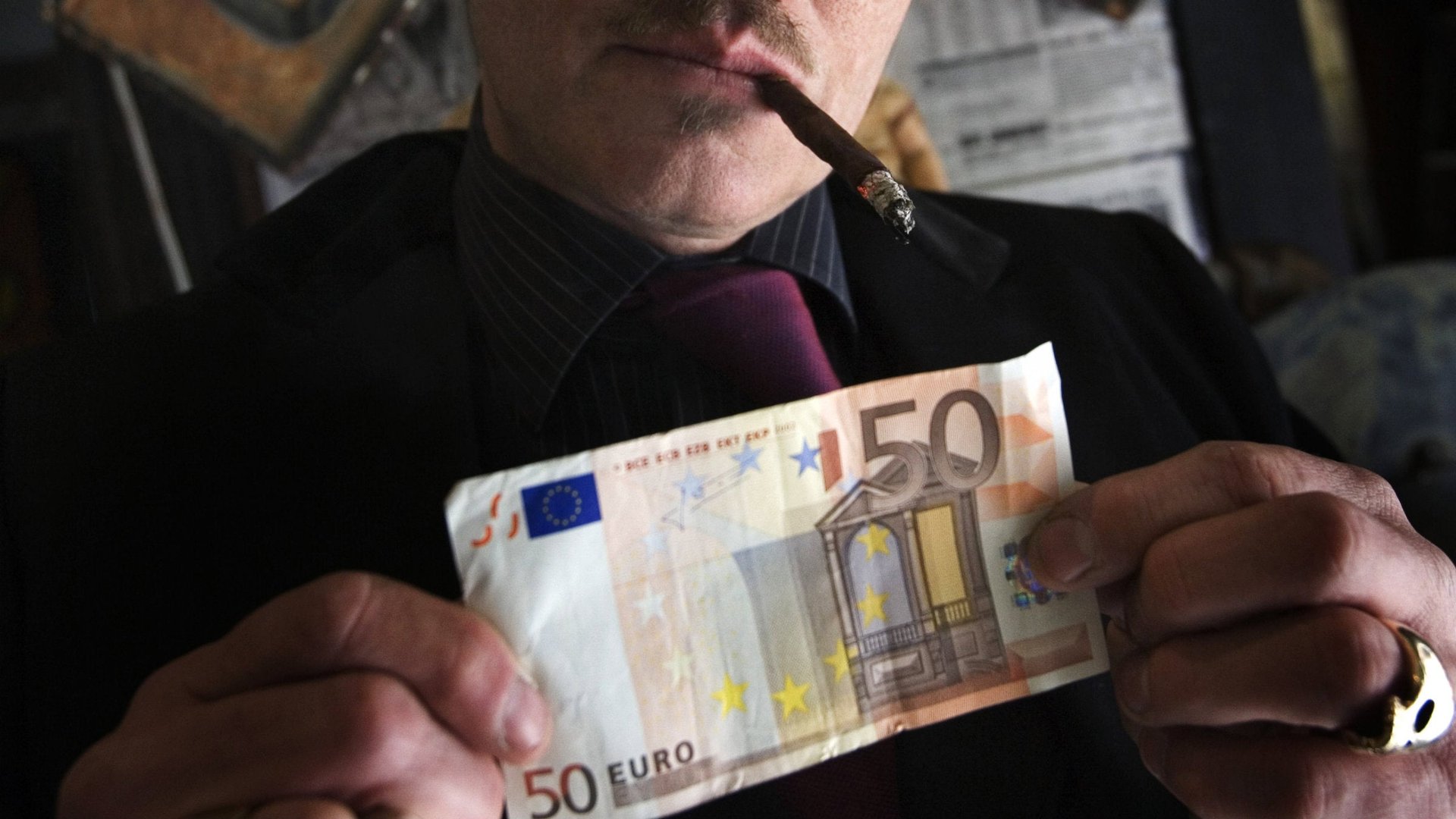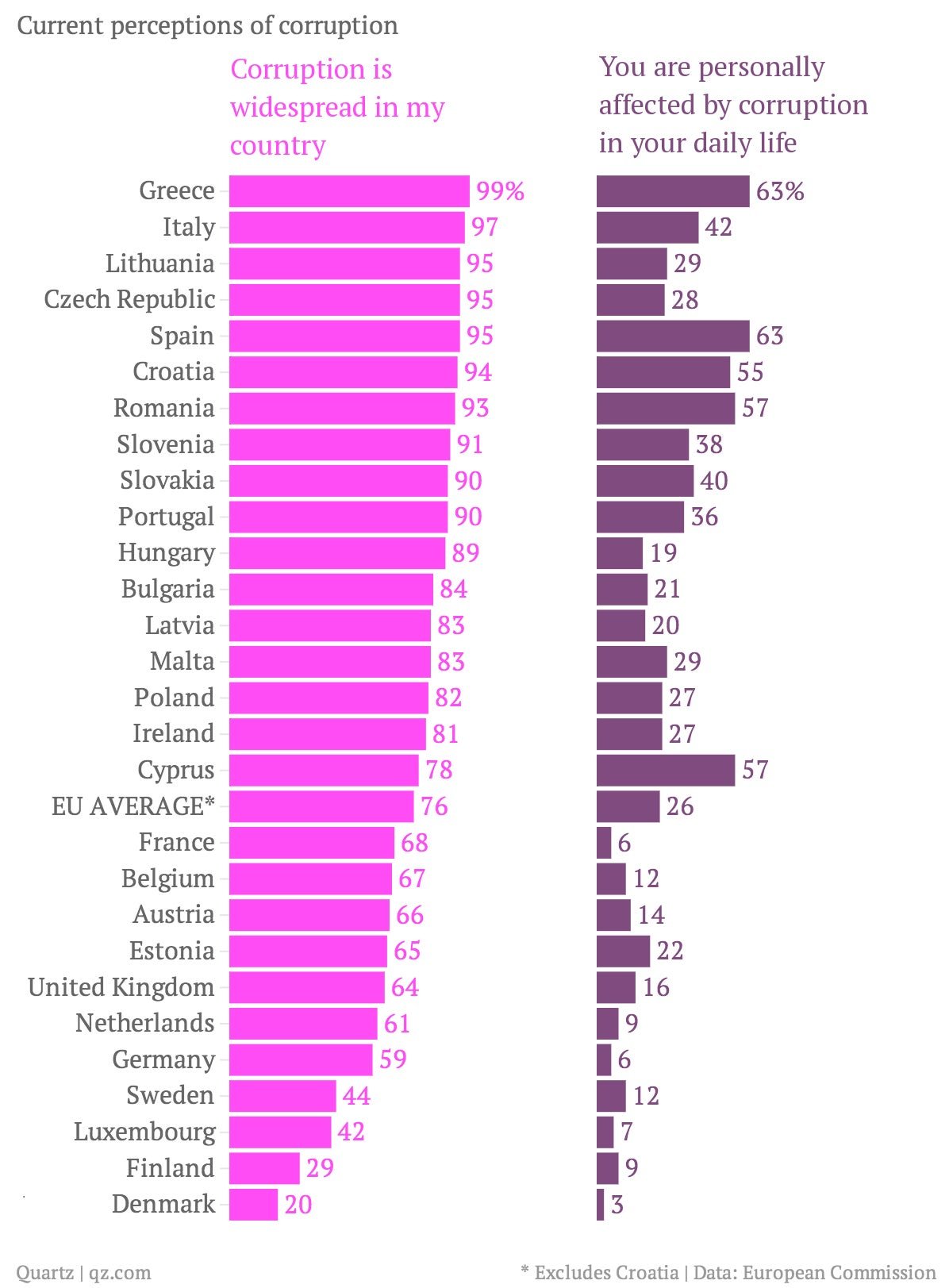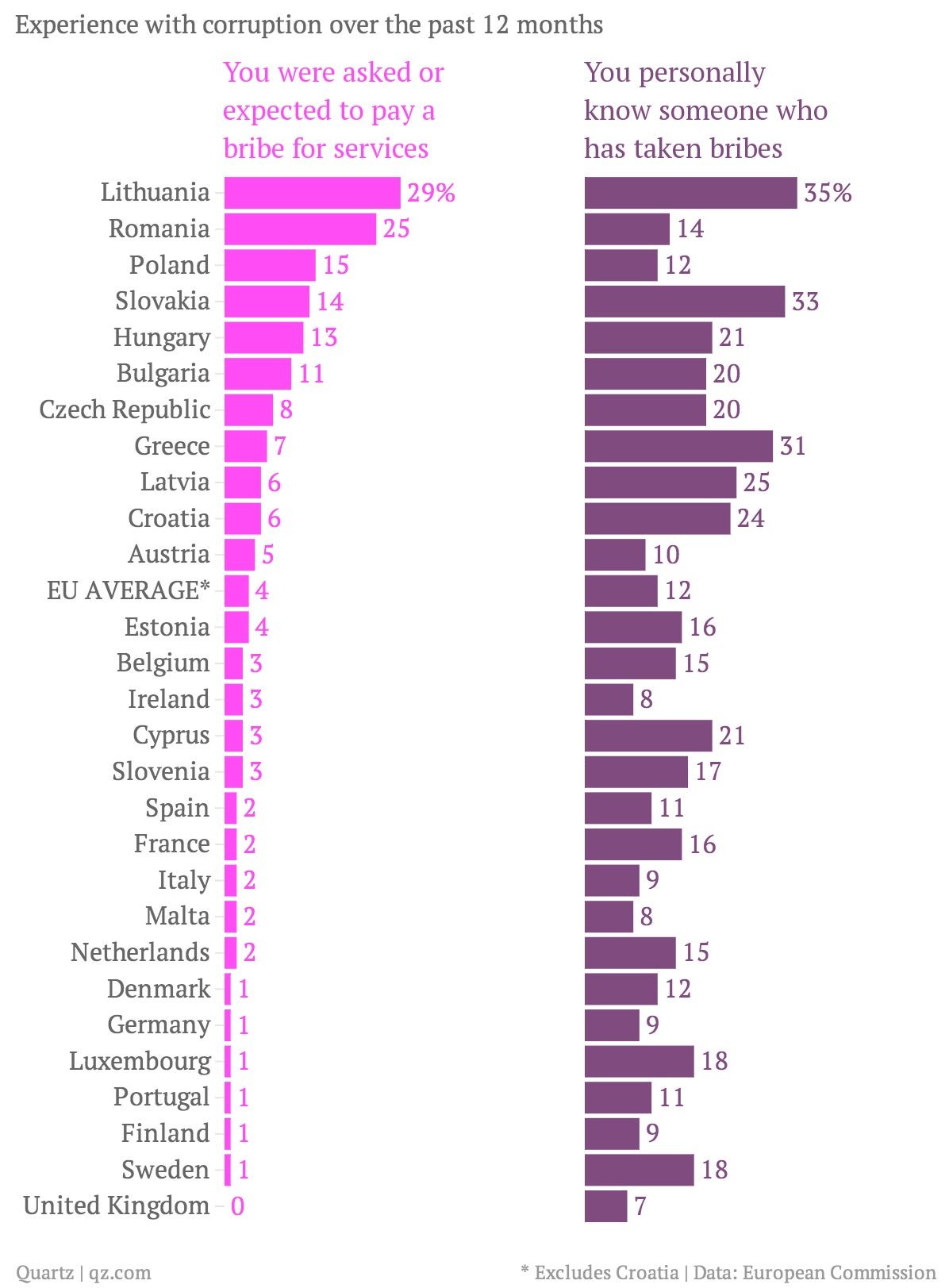Lithuanians and Romanians are more than six times as likely to be asked for bribes than the EU average
Corruption costs the European Union’s economy €120 billion ($162 billion) per year, according to a major new survey published today by the European Commission. Three-quarters of people across the EU think corruption is widespread within their country, and just over half believe it has become worse over the past three years. This is the first report of its kind to chronicle shady dealings across the continent, including plenty of naming and shaming of national anti-corruption efforts.


Corruption costs the European Union’s economy €120 billion ($162 billion) per year, according to a major new survey published today by the European Commission. Three-quarters of people across the EU think corruption is widespread within their country, and just over half believe it has become worse over the past three years. This is the first report of its kind to chronicle shady dealings across the continent, including plenty of naming and shaming of national anti-corruption efforts.

But what’s interesting is how the perception of corruption differs from someone’s personal experience with it. A fifth of Danes think corruption is prevalent, for example (the lowest level in the EU), but only 3% say they are personally affected by it in their daily lives. Some 12% claim they know someone who has taken a bribe, but only 1% say they have paid, or been expected to pay, a bribe themselves.
In much of western Europe, then, it seems that corruption is a somewhat abstract concept for the common person—confined to criminal cliques or a select few who abuse their positions of power (Danes reckon politicians are the most corrupt group in their country). But as you travel to the south and east, corruption appears to creep into one’s daily life, a depressingly routine feature of doing business or accessing public services. In the past 12 months, around one in three Lithuanians and one in four Romanians say they were asked or expected to pay a bribe; the EU average is less than one in 20.

In the countries where people report the most bribery, the biggest culprit, by far, is the healthcare industry. Around a fifth of Lithuanians and Romanians report giving an extra, unofficial payment to a doctor, nurse or hospital in exchange for treatment. This is backed up by other studies; the World Bank reckons that Romanians pay $1 million per day in bribes to medical staff.
Part of the problem, and one of the goals of publishing this otherwise unflattering report, is the reluctance of people to notify the authorities when confronted by corruption. Only 40% of Romanians exposed to corruption say that they reported it to anyone, the lowest in the EU. According to this survey, anyone looking for backhanders in Poland should tread carefully—98% of Poles who say they witnessed corruption in action reported it to the authorities.